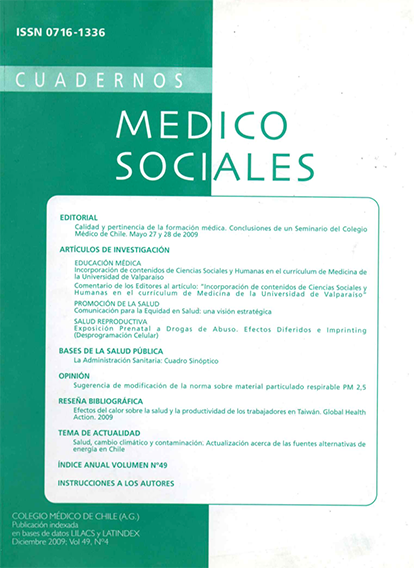Adding Human and Social Sciences in the Medical Curriculum in the University of Valparaíso
Keywords:
Medical Education, Curricula Innovation, Social ScienceAbstract
In 2005, the School of Medicine of Valparaíso started a curricular innovation process. The purpose of this reform is to give a more humanistic and better quality education to develop competences for the future physicians, enabling them to adapt to new contexts of professional labor. In order to inform about the changes made in the contents of human and social sciences, and the time devoted to them, we reviewed the programs of all the subjects and curricular modules of the first to fifth years in 2001 and 2007. In 2001, 45 courses were evaluated, and eleven of them included the contents we were looking for: 24, 4% of courses and 3,2% of their total time. In 2007, 33 courses were evaluated, and in twelve of them we found the kind of contents referred to: 36,4% of the courses and 9,9% of their time). The proportion of courses with human and social sciences is higher in the first three years of the undergraduate program: 4,6% of scheduled hours in 2001 and 14,1% in 2007. Qualitative research methods were not taught in 2001; they were included in the course on Scientific Methodology in 2007. Statistical analysis shows that the differences in the% of hours dedicated to the target contents, from 1st to 5th year and from the 1st to the 3rd, are highly significant. We conclude that the curricular innovation process had a great impact in including human and social sciences in medical education, thus providing better competencies for adaptating to the new contexts of professional work.
Downloads
Downloads
Published
How to Cite
Issue
Section
License

This work is licensed under a Creative Commons Attribution-NonCommercial-ShareAlike 4.0 International License.


